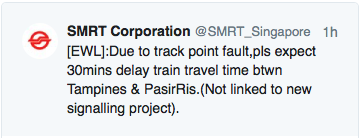TRAFFIC congestion is a dreaded reality in cities around the world.
It is an indicator of economic progress and social mobility, but it comes at social, environmental and economic costs.
The common causes of traffic jams are well documented. They include poor transport infrastructure, peak hour traffic, variable traffic speeds, poor driving habits, vehicle breakdowns and traffic accidents.
Studies have been conducted all around the world that estimate how traffic congestion can weigh on gross domestic product.
The Cost Of Delays
For instance, a recent study by New Zealand’s Employers and Manufacturers Association found that traffic congestion in Auckland could be costing nearly NZ$2 billion a year and is having a big impact on productivity.
In Australia, the government’s Infrastructure, Transport and Regional Economics bureau has found that traffic congestion is costing the national economy A$16.5 billion in lost productivity each year.
There are similar statistics for other cities around the world where such studies have been conducted.
There has been no such recent study that we are aware of in Singapore to quantify the extent of losses on the island. However, the problem is ostensibly eased somewhat by Electronic Road Pricing (ERP) — all the time boosting the government’s coffers by several hundreds of millions of dollars annually — which is said to help raise the average traffic speed where it has been instituted.
Public transport infrastructure is also being improved with more buses, trains and train lines coming onstream, even though SMRT regularly grapples with breakdowns which weigh on the economy just as traffic congestion does.
Just this morning there was a 30-minute delay on the East West Line, the first day of the Primary School Leaving Examination (PSLE), adding to the stress on parents and students taking the exams, as well as those administering the exams.
The social costs of traffic congestion are manifold. The loss of that precious resource called time is probably the one that people will relate to the most.
It can be considered a hidden tax because people are never paid back by governments for the time they lose in traffic congestion.
They tend to accept it as a price they have to pay for choosing to live where they live.
Apart from time loss, traffic congestion can have a broad impact on personal lives. In the morning, it can make people late to work, affecting their productivity and career prospects. As in the case of the delays on the first day of he PSLE, it means additional stress on students already caught up in the rat race for grades.
In the evening, it can delay their arrival at home, which means they have a shorter time to relax with their families and pursue their leisure plans.
Affecting Decisions
In fact, the marginal decisions about whether to go out and spend some money on the economy by eating dinner out or visiting the mall with their kids can also be scuppered if too much time is wasted waiting on the roads.
Traffic congestion makes it difficult to estimate travel times. Those who are experienced in delays due to congestion will always add additional time to get to their destinations. This idea of supplementing travel time has become institutionalised in cities like Bangkok, Jakarta and Kuala Lumpur.
Should this be the norm and do people have to accept this state of affairs?
You Might Also Like To Read:
Mr Brown Swops Islands For A Better Life
How To Choose A Good Business Name
After all, they have left the running of the country to a government that they voted in and should be demanding solutions. It is clear that governments are not doing enough to make life more convenient for the very people who installed them in power.
For Singapore, a case in point are the road links to Johor in the north that are always congested in both directions during peak periods. This is not typical traffic congestion heading in and out of the CBD, although you can look at it that way if you consider the whole of Singapore a CBD for those Singaporeans and Malaysians who come in to work in Singapore from Johor Bahru.
There is bottleneck congestion, because cars, motorbikes, lorries and buses are waiting to be cleared by immigration authorities.
Systemic Delays
Against the backdrop of this long-running saga of congestion, it has been reported that fingerprint scanning will be conducted on occupants of cars above the age of six years as an additional layer of national security at the Customs checkpoints in Woodlands and Tuas. This will add more time to clear each car, which will push back the jam going into the checkpoints, especially during peak periods.
On the Singapore side, vehicles will be pushed back further into the expressways — BKE and AYE — at Woodlands and Tuas, respectively. This will add to the safety hazards on the open road, which seems ironic if the authorities are committed to the safety and security of Singaporeans.
Another point — how is the government going to compensate Singaporeans and Malaysian workers for spending additional time on the links, as well as businesses for lost productivity.
People should not be put at a disadvantage for the benefit of exhibiting social mobility.
What is clear is that the transport infrastructure at the Customs checkpoints in Tuas and Woodland are severely lacking. Either they have to be expanded, or the authorities will have to think about an additional crossing to Malaysia at some point.
While the upcoming MRT and High Speed Rail links will be a godsend, they are years away. If infrastructure development or bilateral solutions between Singapore and Malaysia are not on the table, then more creative ways to reduce travel time at the links to Johor have to be devised that do not compromise high security standards.
All the lofty talk of Singapore being a Smart Nation rings hollow if this cannot be addressed affectively with technology.
Thus It Was Unboxed by One-Five-Four Analytics presents alternative angles to current events. Reach us at 154analytics@gmail.com
Main Image: / Shutterstock.com
[poll id=”53″]





















I m taking mrt at hr, 1pm plus today. At Each station it stop for abt 3-5 min….. wtf….. this is the way they cutting down the cost these days.